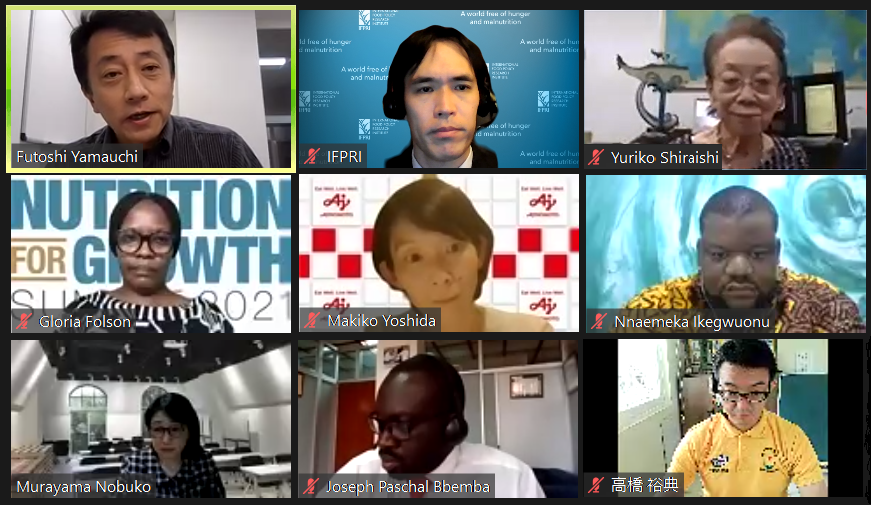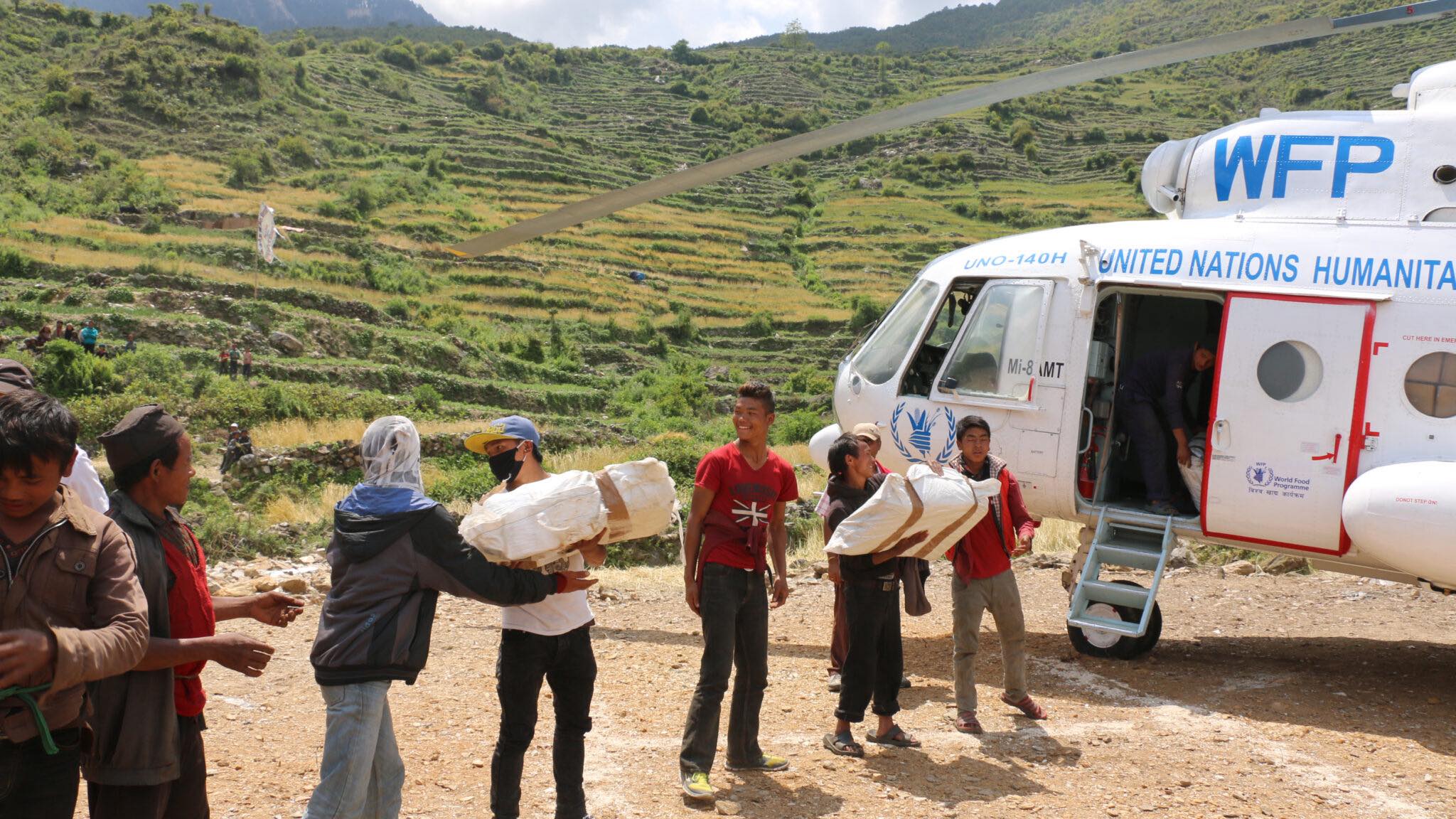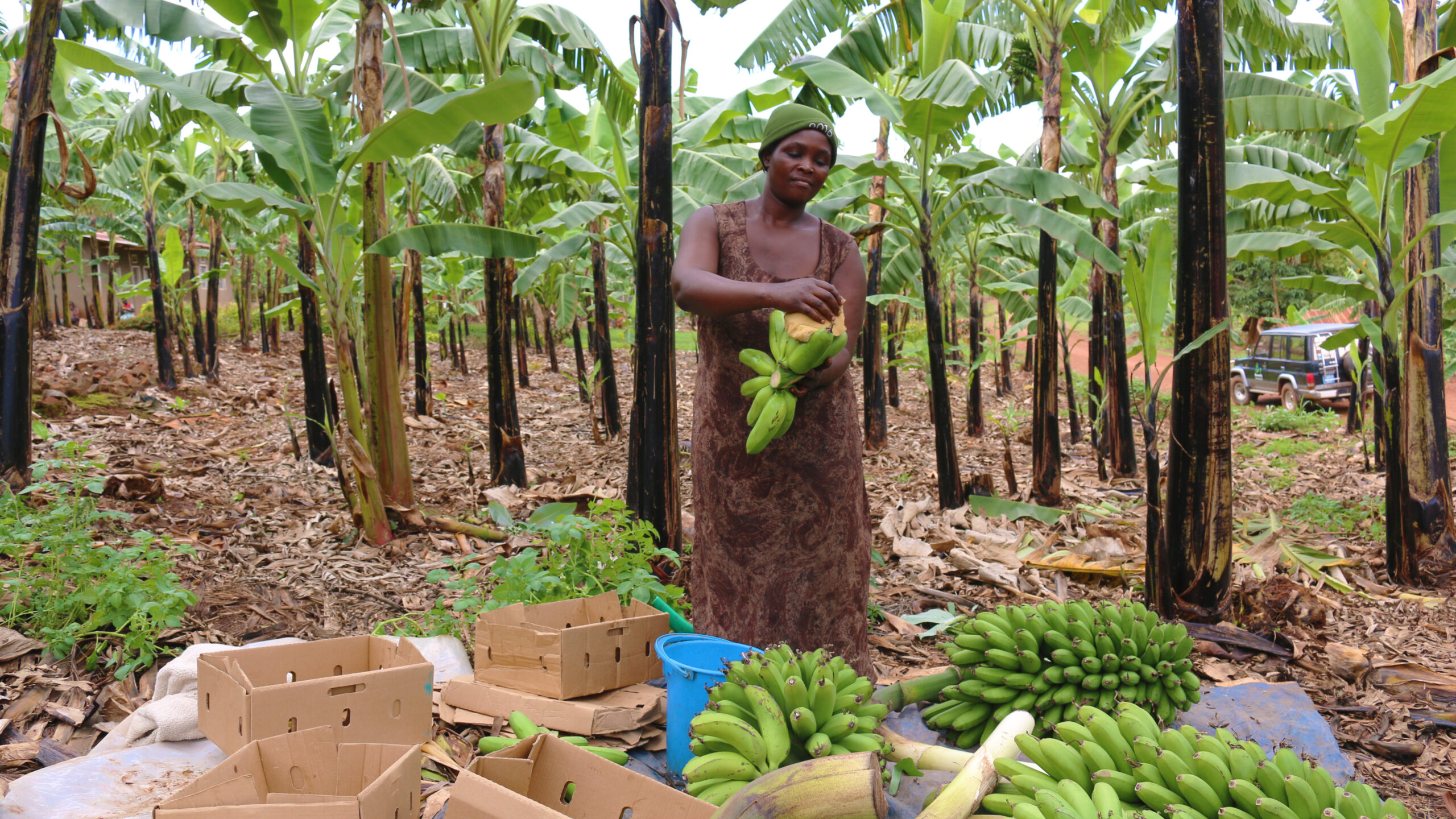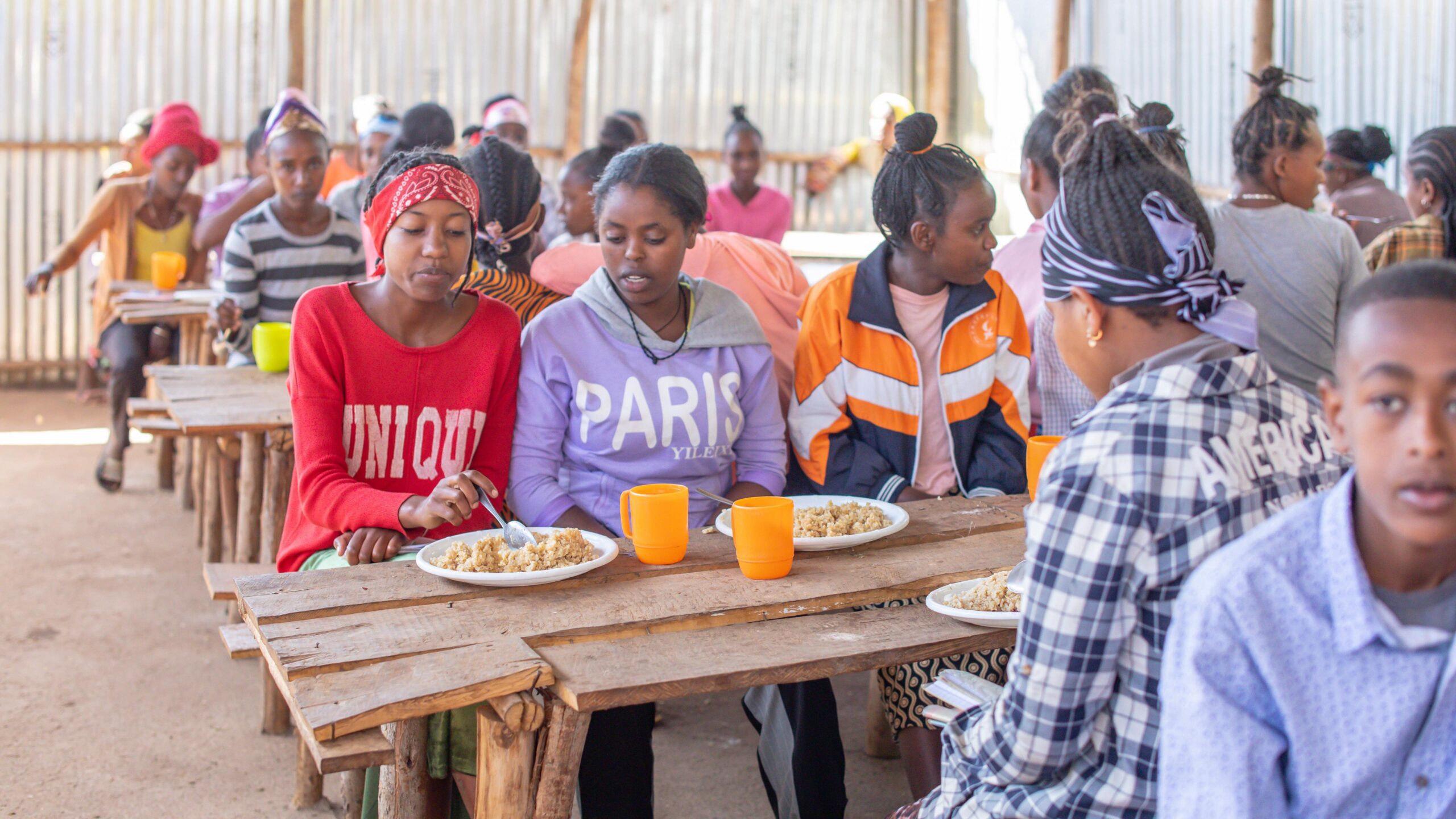As many developing countries face enormous food system challenges such as the double burden of malnutrition, with both undernutrition and obesity on the rise, Japan’s rare nutrition success story—it has achieved zero hunger and is also unaffected by rising overweight—offers a positive example to the world. It owes this success partly to a broad social commitment to healthy nutrition, driven by innovation.
A Nov. 30 IFPRI side event at the Tokyo Nutrition for Growth Summit 2021—“How Japan’s know-how can help address food and nutrition challenges in the developing world”—explored the country’s unique expertise in advanced technologies, technical expertise, and institutional innovations in food security. IFPRI and Japanese collaborators including private sector companies, NGOs and academic institutions have collaborated on a number of these approaches, noted IFPRI Senior Research Fellow Futoshi Yamauchi in opening the discussion.
The Ajinomoto Foundation’s affordable micronutrient supplement KOKO Plus is one such example that supports child nutrition and growth. The Noguchi Memorial Institute for Medical Research (NMIMR) and IFPRI conducted a trial study using the KOKO Plus supplement for HIV-affected children in Ghana’s greater Accra region. The 6-month intervention produced positive results, including improvement in participants’ nutritional status, reduced morbidity rates, and enhanced development. “The essential amino acid lysine included in KOKO Plus is a game changer,” said NMIMR Research Fellow Gloria Folson.
Ajinomoto has also developed a plant-based amino acids-enriched cereal, ready-to-use therapeutic food (RUTF), to treat children with severe acute malnutrition. A pilot study in Malawi showed the potential of plant-based RUTF as a treatment for severe wasting in children under 5 while improving iron levels. Plant-based RUTF can be produced locally, in contrast to milk- and peanut-based forms of RUTF, which typically require imports of raw material, said Makiko Yoshida of Ajinomoto Inc., making it a cheaper, effective and sustainable alternative.
Food loss and waste is a significant contributor towards food and nutrition insecurity. ColdHubs, a Nigerian social enterprise, operates solar-powered cold-storage facilities across the country to reduce food loss and waste by lengthening the life of perishable food items in rural areas, said ColdHubs CEO Nnaemeka Ikegwuonu. Supported by the Japanese government, ColdHubs and IFPRI jointly have built cold storage units using Panasonic solar panels in high potential Nigerian local vegetable markets. In the first three months after installation, the units helped reduce the proportion of food spoiled by half and improved overall nutrition within individual rural communities. The enterprise has also created jobs and helped to increase incomes of market agents and farmers, while leaving a much smaller carbon footprint than typical cold storage facilities, Ikegwuono said.
IFPRI also proposes introducing refrigerated trucks with rechargeable solar-powered high efficiency batteries, added IFPRI Senior Research Fellow Hiroyuki Takeshima. Solar panels can be mounted on the truck to recharge the batteries on the go and without any power supply from the engine.
Japan’s innovative national school lunch program helps to reduce the double burden of malnutrition and socioeconomic disparities of diet, while promoting sustainable school learning through the use of local foods, said Nobuko Murayama, a professor at the University of Niigata Prefecture and President of the Japanese Society of Nutrition and Dietetics. A similar framework can be emulated in countries with food-insecure children in collaboration with academia, government, NGOs and other partners, she said.
The Japanese technique of processing fish products into a versatile paste called surimi is another success story, as demonstrated in Cote d’Ivoire by NPO Uminokuni Japan. Surimi preserves most of the nutrients of the original source, in contrast to many other fish processing techniques, thus improving protein intake. Similarly, the Sasakawa Africa Association and IFPRI have introduced market-oriented horticulture (the Smallholder Horticulture Empowerment and Promotion or SHEP approach) training program in Uganda’s northern region to refugee hosting farming communities. This behavior change approach educates farmers to understand market mechanisms to help them make optimal planting and marketing decisions and transition from “grow and sell” to a “grow to sell”attitude, thus boosting farm incomes in these vulnerable communities which helps build resilience to COVID-19 and other crises.
Swati Malhotra is a Communications Specialist with IFPRI’s Markets, Trade, and Institutions Division (MTID); Futoshi Yamauchi is a MTID Senior Research Fellow; Hiroyuki Takeshima is a Senior Research Fellow with IFPRI’s Development Strategy and Governance Division.







